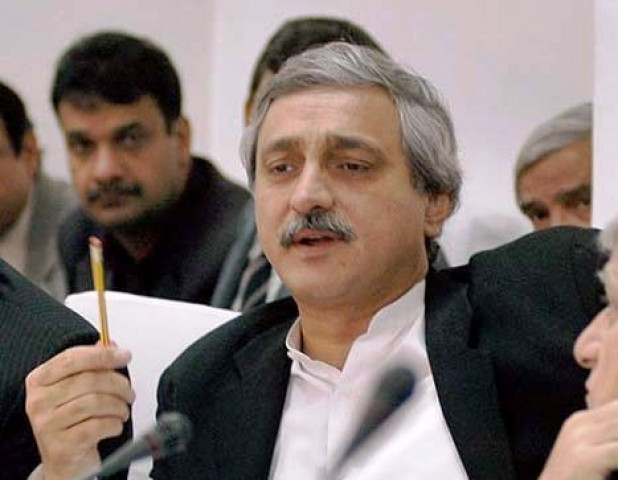SC wants wealth statements of Tareen’s children
Says age, marital status not the necessary criteria to determine dependent status

PTI General Secretary Jahangir Tareen. PHOTO: APP
“Please give us a summary of the children’s wealth statements because age and marital status are not the necessary criteria to determine that they are not dependent,” Justice Umar Ata Bandial said to Tareen’s counsel Sikandar Bashir Mohmand.
Justice Bandial also observed that there are two judgments wherein it is held that disclosure of ‘beneficial interests’ will be mandatory.
The three-judge bench of the apex court, headed by Chief Justice of Pakistan Mian Saqib Nisar, is examining the legality of Tareen’s offshore company Shiny View Limited (SVL), which is now owned by a Trust created by Tareen in 2011.
SC seeks money trail of Tareen’s UK house
Earlier, Tareen’s counsel told the court that his client spent £4.7 million in 2011 to buy the 12-acre Hyde House property, which is owned by SVL.
The counsel argued that Tareen “is no longer the legal owner as the trust is owned by the bank ESG, and although his children are not beneficial owners, they can still use it for residential purposes”.
During the previous hearing, the bench had asked the counsel to submit a money trail regarding the 2011 purchase of Hyde House in the UK.
On Wednesday, Sikandar submitted records for the transaction and told the bench that £3.6 million had been remitted by Tareen from Pakistan to the UK between 2011 and 2014, adding that £2.2 million was the mortgage amount.
Disqualification case: Authenticity of documents still under question, says CJP
He argued that since his client was not the legal beneficial owner of the property, he was not bound to disclose it in his tax and ECP filings. He also admitted that there were exchanges of millions of pounds in gifts between Tareen and his children.
However, the chief justice questioned whether the court could adjudicate on the matter related to exchange of gifts between father and sons under Article 184(3) of the Constitution. He also asked whether a wife paying taxes on her own income would still be considered a dependent.
While mentioning that the petitioner’s attorney is claiming that this case is similar to the Panama Papers case in various aspects, the CJP asked Tareen’s counsel to differentiate between the two.
The counsel replied that the Panama Papers verdict could not be applied in Tareen’s case because his client did not have any assets beyond known means and he had declared all sources of income. “Besides, contrary to the case of former prime minister Nawaz Sharif, there is no concealment of assets,” he added.
The counsel also said the Sharif family had filed a fixed trust deed as they were the beneficial owners, but “things are different in Tareen’s case wherein a trust has been established under the UK law”.
SC seeks money trail of Tareen’s UK house
He also relied on the Panama majority judgment which says a parliamentarian can only be disqualified for failing to fulfil legal obligations. He, however, fully backed the July 28 verdict and said it was not the first case wherein a parliamentarian was disqualified under Article 184(3) of the Constitution.
“I have given complete details of banking transactions but the Sharif family did not do so,” he added. The counsel, however, said the court should see that the petitioners, while filing petitions under Article 184, should bring some material against parliamentarian otherwise the floodgates would be opened. He said the election laws “do not bind parliamentarians to reveal sources of income”, but Tareen had disclosed all of his sources before the ECP.
He said that SC adjudicated the Panama Papers case because no other government department took action. On the other hand, a number of cases have been made against Tareen over the last four years.
The CJP observed that the issues relating to Tareen’s agricultural land were significant as he did not produce revenue records to establish that he was holding 18,566 acres of leased land near Rahim Yar Khan. The top judge also observed that while determining the honesty of an individual, “the court examines conduct, not the state of mind”.
The hearing was adjourned until November 7.



















COMMENTS
Comments are moderated and generally will be posted if they are on-topic and not abusive.
For more information, please see our Comments FAQ